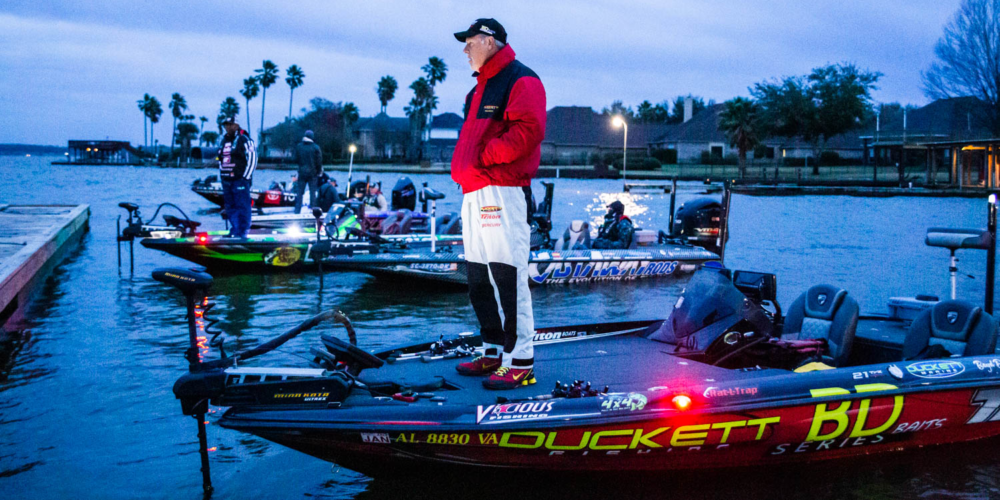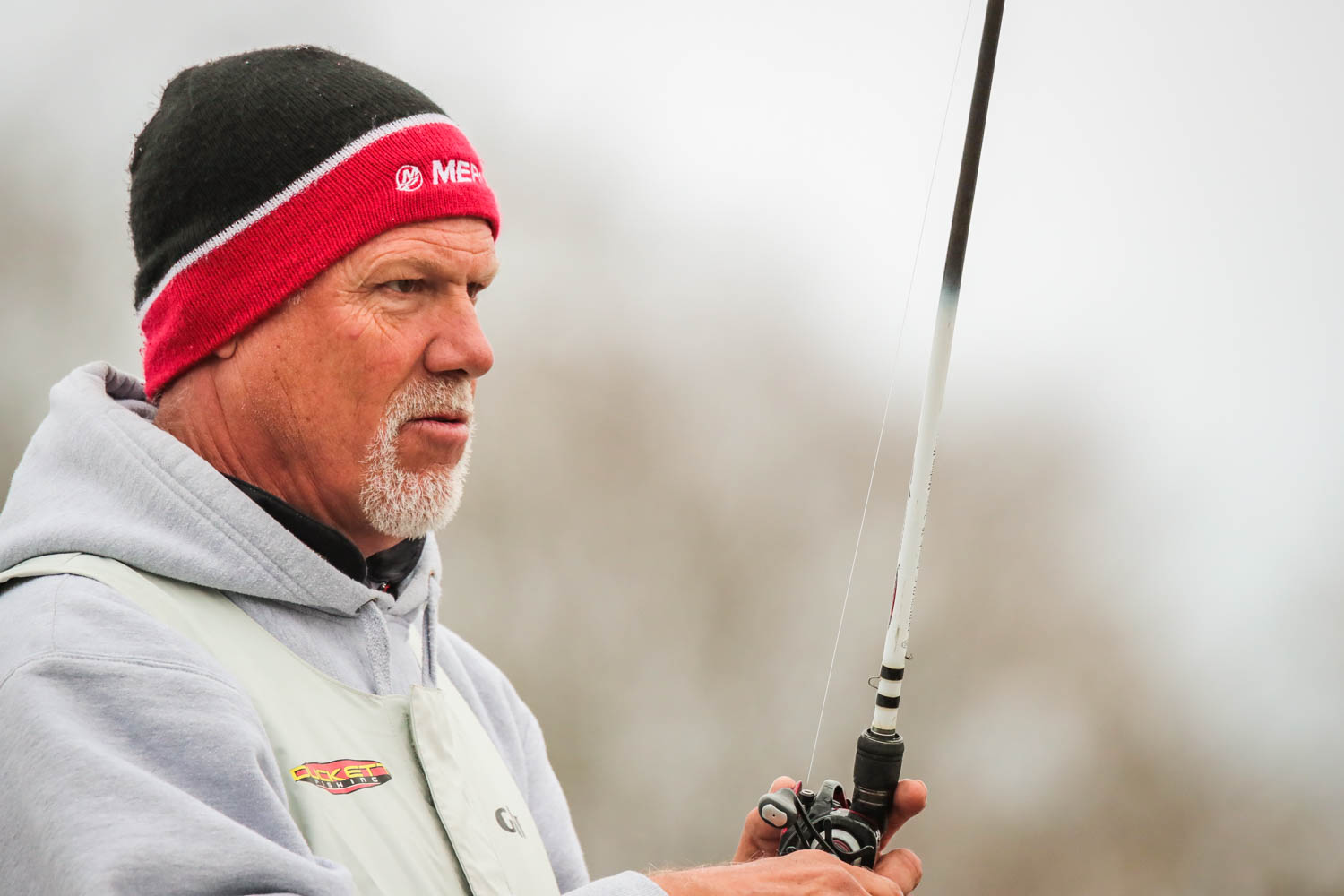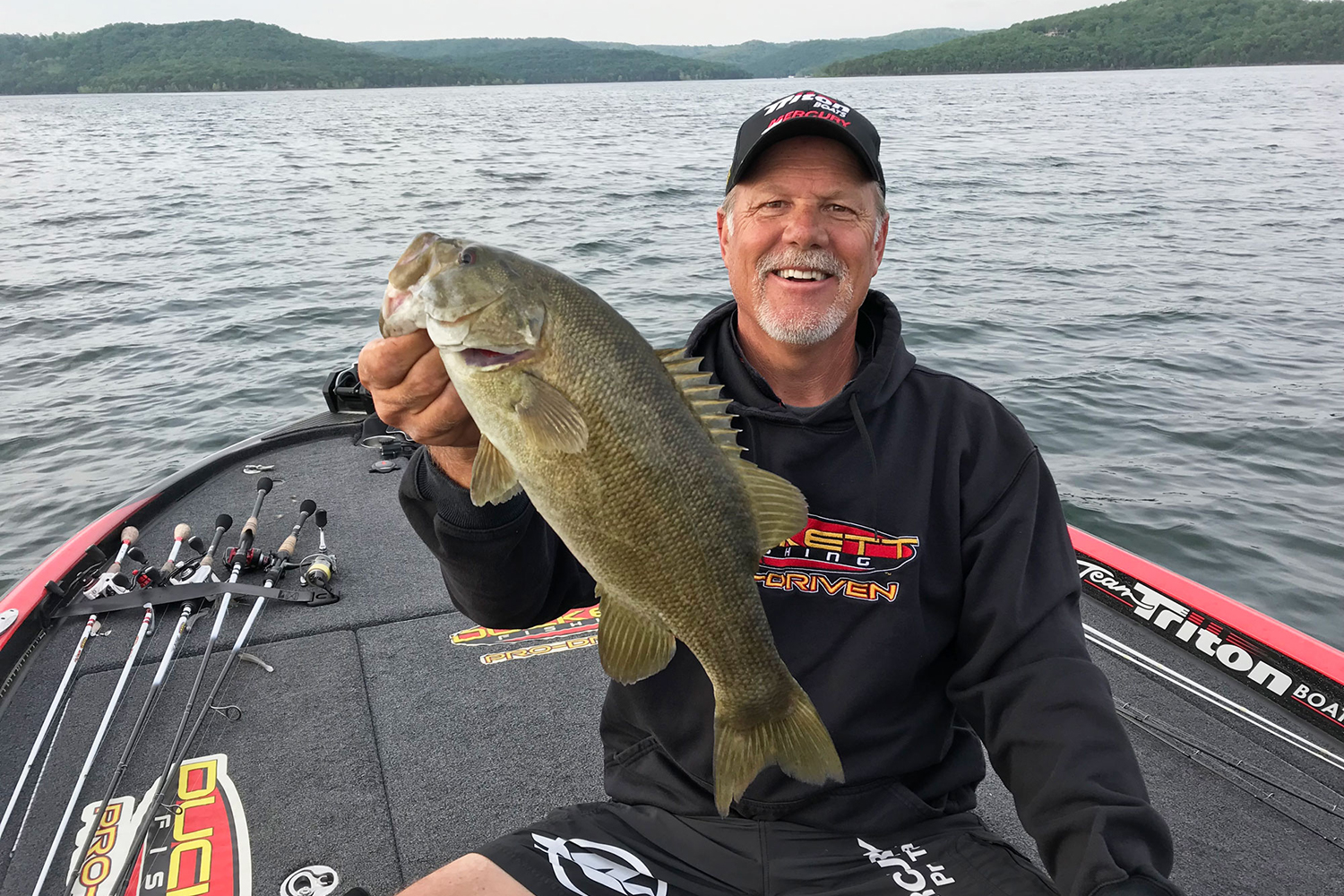Duckett’s Vision Played Out in Full on 2019 MLF Bass Pro Tour

Boyd Duckett made history in 2007 when, as a 47-year-old “rookie,” he rang up over $830,000 in tournament winnings in his first full year as a tour-level pro.
But it’s not Duckett’s pro bass career or the fact that he has coupled it with a highly successful business career outside of angling that’s carved his face into pro angling’s metaphorical Mount Rushmore. It’s the vision that he shared with Gary Klein and others that led to the birth of Major League Fishing.
As REDCREST and the inaugural Bass Pro Tour season wound down in La Crosse, Wisconsin last weekend, I recalled a conversation I had with the Alabama pro one distant May morning as we hopped between South Carolina sand pits.
Finding the “Zone”
On the drive, I asked Duckett about his multi-faceted career and the challenge of balancing lucrative interests in and outside of fishing.
There were tradeoffs, he admitted.
Being able to fly into events and enjoy comfortable hotel rooms were clear advantages. On the other hand, hours spent in meeting rooms and day-to-day decision-making borrowed shamelessly from his on-the-water time. Duckett waxed philosophical but optimistic.
“My advantage is ‘mining my day,’ managing the fish I find,” he said. “What I mean is, if I do make a Top 12, I have a good chance – a better chance than most – of winning.”
Duckett confessed that he had taken an almost obsessive interest in the internal components of angling success and the psychology of winning performance.
“They say that success is 90 percent mental in golf,” he said. “Well, tournament fishing is 95 percent mental. It’s about positive mental perspective and tournament management.”
He kept a close eye on the veterans and enjoyed watching the maturation of top anglers. Years earlier, Rick Clunn had opened his eyes to the difference between catching fish and “fishing well.” More and more he found himself studying the winners and the guys who had grown from “good fishermen” into top money winners. How could Kevin VanDam continue to dominate year after year? How had others evolved from talented fish catchers to tournament champs?
“These guys may not be at the peak of their game physically, but they are at the peak of their career mentally,” he said.
But something more about success intrigued him.
If you’ve ever experienced even a fleeting moment when every action felt fluid and instinctive and right and the game seemed to come to you, you long to have that moment back. You yearn to see the playing field as you saw it then and to experience again action played out in slow motion.
Was it possible, Duckett wondered, to replicate whatever you had done to enter the “zone” and to get there again when you needed to?
In a similar vein, he wondered if the bass world could bring bass tournament fans so close to that experience that they were practically in that zone with the angler while it lasted.
Taking Golf Lessons

Bass fishing drew its blueprint from the NASCAR model early in its history, Duckett recounted. Its players wore colorful logo-laden jerseys. Bass boats quickly evolved into fast, powerful fishing machines. All well and good. But Duckett felt bass fishing shared a tighter kinship with other sports.
Take golf, for example.
Like bass fishermen, golfers compete only secondarily against the names on the leaderboard. Mother Nature captains the primary competition.
The golfer’s first challenge is the course itself and nature’s influence in forms of wind or rain or course-hardening drought. Anglers square off similarly on their course – a lake, reservoir or river system – with even more of nature’s influence to contend with. And they hunt a fickle, moody and largely unseen quarry in the black bass, a target far more elusive than the 18 holes repositioned by groundskeepers each day.
Those shared similarities no doubt helped make fishing and golf America’s most popular participative sports. But golf enjoyed a huge viewer following that reached well beyond those who actually played the game.
Bass fishing did not.
Sowing Seeds of SCORETRACKER®
Duckett was set to make his case.
Golf is a simple game. The goal? To club a little white ball into a distant hole.
You would expect it to be the most boring of sports to watch.
But it’s not.
Good golf tournament coverage features quick-cut action from fairway to bunker to green, one man’s drive juxtaposed with another’s long putt. In between, analysts size up the layout of each hole and the hazards along the way – the pines lining one side of a fairway and the prairie rough bordering the other; the four-acre water hazard on No. 8; the tricky contours of the green on 18.
Bass fishing’s “playing field” draws striking similarities: stretches of open water leading to wooded coves, stump-filled flats, overhanging trees, bays carpeted with lily pads, or fringed with reeds and wild rice.
Golf captures the up-and-down emotions of shots made and missed, building an emotional bridge between player and fan. Who doesn’t understand sudden and overwhelming disappointment?
Lost fish can haunt an angler for a lifetime. But even non-anglers can understand the anguish of “the one that got away.”
Golf also had a learning dimension for the practitioners among its viewers — a slow-motion breakdown of a swing or a brief tip from a golf guru on how to hit a ball properly from a sand trap. Surely almost every angling scenario provides occasion for a lesson on tackle, technique or reading the underwater landscape.
But one big difference separated bass fishing from golf and all other popular sports.
“Every sport keeps a score,” Duckett emphasized. “A scoreboard keeps the fans engaged. You always want to know the score when you’re watching baseball, football, basketball. Even in golf. You know what player is in the lead and by how many strokes. But that’s not the case when you watch coverage of a bass tournament.”
Scorekeeping. Knowing the score. Playing the game with the knowledge of where you stand with respect to your opponent(s).
Yes, scorekeeping was bass fishing’s missing link.
SCORETRACKER® is Born

Ask any angler who has participated in a Major League Fishing event today what the biggest difference is between the MLF format and a five-fish weigh-in, and they’re quick to mention SCORETRACKER®. Knowing that others are catching when you aren’t – or vice versa – adds a whole different dimension to the sport. Big deficits often lead to big decisions and fateful practices, good and bad.
And while an angler might often choose to rest a honey hole when he has a hefty five-fish limit in a conventional tournament, no total or lead seems safe in an MLF event where almost every fish matters.
Real-time scores and timeclock pressures create the kind of excitement that brings a fan who never owned a hockey stick into a hockey arena, and Duckett believed that a bass tournament could provide comparable excitement with time periods and scoreboard pressures in the mix.
“You don’t even have to be a bass fisherman or a fisherman at all to identify with competition,” he said. “If you’ve played sports competitively or had a taste of competing at anything, you can get drawn into the drama of a game … if it’s presented right. There’s emotion, anticipation, elation, surprise and disappointment – lots of highs and lows when you compete. People want to see that. And if they get to know the players, the personalities they are watching on the screen, the connection could be that much more intense.”
A broader fan base awaited bass fishing, he believed, if bass fishing could bring the right game to town. And, with that, the economics would follow. More TV viewers would broaden the advertiser base, bringing more non-endemic advertisers – companies with products unrelated to fishing or boating – to MLF viewers and enriching the pot for the pros, Duckett predicted.
Postscript

We arrived at the second sandpit a half-hour later and went back to fishing.
Change of fortune came with the change of venue. Duckett’s shaky head worm got hot at the second sandpit. Pitching and flipping jigs in the pockets of overhanging trees brought photo fish to the boat. Yet my thoughts kept returning to our conversation.
Change was in the air, I sensed, but I had no idea that it would be coming soon.
With the Bass Pro Tour’s first season now complete, that day with Duckett has the feel of yesterday. It’s not often that you find history foreshadowed in a 30-minute drive between fishing holes.
If it hadn’t been for the stubborn bass in a newly opened sandpit, that conversation might never have happened.
But it did.
So did Duckett’s dream.